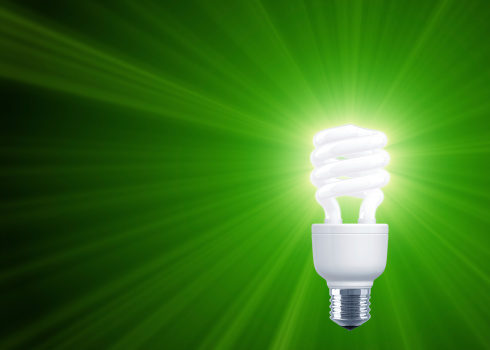Entrepreneurs and environmentalists alike have been scratching their heads for years, trying to think up ways to help the planet that are economically viable at the same time. The utility bill from a regional electricity provider might be the last place we’d think to look for an answer, but that’s just where you can find a new, effective green trend taking root these days.
The idea is simple: A utility provider offers a voluntary surcharge to be added on to the monthly electricity bill of its customers, both corporate and citizen. The proceeds from this fee will then be used toward the purchase of green energy credits to offset the environmental costs of electricity usage. The EarthSmart Green Rate program from Public Service of New Hampshire (PSNH) is a leading example of this idea.
Industry company MegaFood, which specializes in artisan whole food supplements manufactured in its Derry, NH facility, recently joined PSNH’s program as a corporate customer. Its sales and marketing office has chosen the 100% Green Rate contribution level. In effect, this means that PSNH will buy renewable energy certificates (RECs) offsetting 100% of the office’s monthly electricity usage.
“Our PSNH representative introduced MegaFood to the program when it became available for businesses in NH,” says Stacey Gillespie, director of marketing for Megafood. The company had been working with PSNH to improve the efficiency of their energy use, and to reduce consumption overall, according to Gillespie, who says the initial response to the move has been very positive. “Our employees and retail partners are excited that the company is actively improving our corporate sustainability by helping to reduce our carbon footprint, as well as supporting the development of renewable energy in New England.”
Richard Branch, EarthSmart Green Rate program manager for PSNH, says that there are similar programs underway in other parts of New England. Under the PSNH program, the three kilowatt-hour (kwh) offset options available are 25%, 50% and 100%. Each option entails a larger premium on the monthly bill. Residential customers that choose the 50% contribution, for example, will pay an estimated 12% extra per month, while a business would pay about 10% more. The extra charge appears as a separate line item on the bill, and customers can choose whether to adopt or retain the premium on a monthly basis.
The program, launched in May of 2010, has gotten off to a good start, according to Branch. “Given the challenging economic times we are very pleased with how the program has been going. During the eight months of 2010 that the program ran, EarthSmart Green Rate customers offset 193,000 kwh,” equivalent to the power used by 26 typical New Hampshire homes in a year, he says.
It is a relatively small dent, but widespread adoption and promotion of programs like this could mean a revenue bonanza for the renewable energy boom. PNSH purchases its RECs paid for through the program from local renewable energy sources. Vendors of RECs include biomass, wind, hydro and solar energy providers. If RECs are not available at a reasonable cost, then PSNH makes a payment to the State of New Hampshire’s Renewable Energy Fund, used to promote the development of renewable energy projects.
This simple idea has potential as an economic model for a greener future, but it will take the support of many eco-conscious businesses and homeowners. First, though, it will need to become an entrenched way of doing business. In fact, according to Branch, this may already be happening, as it’s now required by law that utilities in New Hampshire offer a green pricing option.
Published in WholeFoods Magazine, April 2011 (online 2/11/11)










